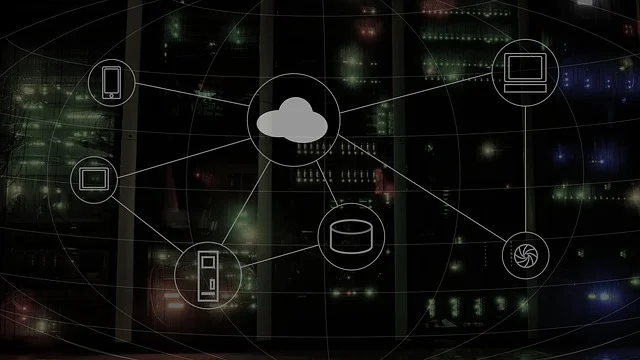
Image source: Pixabay
What is Cloud Computing?
Are you familiar with iCloud or Google Drive? Those are services where you are able to store your information on the internet. Those are examples of services provided in the cloud computing sectors.
Cloud computing is a branch of the cyber world that focuses on computing services such as providing servers, storage (like Google Drive, iCloud, Dropbox, etc.), database, analytics, networking, software, and intelligence with one major difference:
It’s in the clouds!
What is a cloud, then?
In this context, these clouds refer to the internet, where instead of doing all the processes mentioned in the examples above using one’s own physical computer, you let them ‘float’ around on the internet!
Is Cloud Computing a ‘big thing’ now?
It’s not big - it’s HUGE!
Technology, as we know it today, is growing so fast that sometimes companies can’t afford to keep upgrading their computers and facilities just to handle the sheer amount of data and processes.
To handle that issue, they pay these companies that provide cloud computing services to handle these tasks.
Fun fact: the United States government paid Amazon USD 10 billion to manage their data through cloud computing!
Major fields in Cloud Computing
1. Advanced Database Systems
In this field, the focus would mainly be on developing technical skills and familiarising yourselves with database management techniques.
You will frequently encounter database management software such as Structured Query Language (SQL), which will assist you to organise your databases which may contain millions of data in a way that won't lead you to burnout.
2. Computer Systems Management
This field teaches you how to properly manage a system within a network or database, which normally would then be delivered to your client.
In this field, you will learn how to look into IT system requirements of a certain service, acquire system or software, maintain the equipment, monitor system performance, and many more.
3. Information Storage & Management
This field mainly focuses on developing your skills in managing and storing information.
It may sound easy, but in practice, there are millions of data that you must deal with.
In addition to that, you will have to juggle between the physical aspect of it - such as knowing when to upgrade your hardware & what hardware to purchase; as well as knowing the digital aspect of it, such as knowing how and where to store the data for easy accessibility.
4. Cloud Security
This field may overlap with the other fields mentioned before. However, in itself, this field mainly focuses on securing the whole 'cloud' infrastructure.
As mentioned before, the United States government paid Amazon billions of dollars to house their data,and just like any other clients, they can't afford to have their data leaked or hacked!
This is why this field is very important. Imagine building a house with top-notch decorations, high-quality materials, and excellent furnishing - but the gates and doors can easily be pried open.
Just like you want to keep your personal home safe, you must also ensure the system you are providing your client with is safe and secure, or else your company may face hefty court claims!
What subjects are taught in Cloud Computing?

Image source: Unsplash
Subjects may vary according to institutions, however, here is an example to provide you with insights into what you may expect later:
- Computer Architecture
- Fundamentals of Operating System
- Graphic Animation
- Information Security and Ethics
- Introduction to Data Analytics
- Introduction to Database Systems
- IT Infrastructure Landscape
- Mathematics for Computing
- Object-Oriented Programming
- Programming Techniques
- Systems Analysis and Design
- Computer Communication & Networks
- Data Structures & Algorithms
- IT Project Management
- Quantitative Methods
- Software Engineering
- System Development Tools and Techniques
- Cloud Computing Architecture & Deployment Model
- Introduction to Cloud Computing & Virtualization
- Advance Programming Paradigm
- Artificial Intelligence
- Project I
- Project II
- UX Design
- Web Programming with PHP
- Backup and Disaster Recovery
- Cloud Security
- Mobile Application Development using Android
A few terms that you will need to know
While cruising through the course, there are a few terms that you will encounter and be familiarised with, among them are:
Hybrid cloud: a combination of public cloud services with a private cloud platform. They are usually connected through an encrypted network.
Infrastructure as a service: a cloud platform that links hardware systems through the Internet; another name for this is “hardware as a service.” This is where users usually outsource tasks that would be burdensome to their own hardware to these cloud platforms.
Multitenancy: software that allows multiple users to access and use the software from different locations.
Platform as a service: providing a 'virtual platform' for users to run, manage, and develop web applications.
Software as a service: this is where software is stored at the provider's data centre instead of the user's computer and users can access this software from afar. Example: Canva, Microsoft 365 & Trello.
Third-party data centrer: a data centre service where users can free their minds off maintaining its infrastructure. One of the usual names in this service is Amazon which houses United States government data.
What are the skills and characteristics needed in Cloud Computing?
1. Critical Thinking
In this course, you will have to learn how to apply the knowledge you have learned critically.
Sometimes the issues you face in real life might require you to do a few brain gymnastics, make sure to stretch those ‘brain muscles’ first!
2. Fast-learner
The digital world is changing every second - as you are reading this article, there is probably something new in the field found somewhere.
You will have to keep up with all the changes to stay on top of your game and to keep yourself informed on the new and coming changes in the industry.
3. Team Player
Computing is not a one-man show. Even the internet we know today is a product of thousands or millions of hands working over the same goal - to improve the internet.
Do explore social media platforms like Reddit, Twitter, or online forums to gain insights into the industry. Interestingly, these platforms are full of helpful people who are willing to teach you from scratch.
4. Prudent With Digital Technology and Software
If you are thinking of venturing into the cloud computing field, this set of skills is not something that you can compromise with.
To ace this field, you will need to be able to know how to use various software, especially those that deal with programming tasks and database management.
5. Programming Skills
Programming is something that is so crucial to the world of computing as a whole - it is almost as important as writing is to studying English literature.
Here, you will have to familiarise yourself with software like Python and programming languages like PHP.
However, career-wise, if you are keen on joining the cloud computing industry, it is not always necessary for you to be a good programmer, but being one will definitely put you ahead of the competition.
Cloud Computing programmes in Malaysia

Image source: Unsplash
Thinking of studying cloud computing but don’t know where to look? Don’t worry we got you!
- Bachelor of Computer Science (Hons) major in Cloud Computing
Asia Pacific University of Technology & Innovation (APU)
- BSc (Hons) in Information Technology - Cloud Computing Specialisation
- Doctor of Philosophy in Computing - Research in Cloud Computing
- BSc (Hons) in Computer Science
- Master of Philosophy (Computer Science)
- Doctor of Philosophy (Computer Science)
University Malaysia of Computer Science and Engineering
- Master In Computing - Research in Cloud Computing
- Doctor Of Philosophy (Computing) - Research in Cloud Computing
Universiti Teknologi Mara (UITM)
- Bachelor of Computer Science (Hons.) Netcentric Computing
Salary outlook for fresh graduates
There are a few paths for fresh graduates in cloud computing to explore, among them are:
Cloud Solution Architects: RM 9,000 - RM 14,400
Cloud System Administration: RM 3,400 - RM 5,100
Cloud Security Analyst: RM 2,400 - RM 8,900
Cloud Application Development/Maintenance/Testing: RM 5,160 - RM 10,000
Data Migration & Modernization: RM 8,300 - RM 9,500
Cloud Project Management: RM 5,000 - RM 8,000
How long is the duration of studies for Cloud Computing in Malaysia?

Image source: Unsplash
Bachelor’s Degree: 3-3.5 Years
Master’s Degree: 2-4 Years
Doctor of Philosophy: 3-6 Years
How much are the tuition fees to study Cloud Computing in Malaysia?

Image source: Unsplash
Bachelor’s Degree: RM 1,400 - RM 88,200
Master’s Degree: RM 9,500 - RM 25,600
Doctor of Philosophy: RM 18,350 - RM 48,600
What are the entry requirements?
Curious to know if you are a perfect fit for cloud computing? Here are the (usual) requirements - but do note that they may differ according to institutions.
Bachelor’s Degree
Foundation
- Completion of Foundation Programme in relevant fields.
- Credit in SPM for Add Maths or Maths.
- Credit in SPM for either Science, Technology, or Engineering Subjects.
Diploma
- Diploma in Computer Science, Information Systems, Information Technology, Software Engineering, Science/Technology or equivalent.
- Credit in SPM for Add Maths or equivalent.
A-Level
- Credit in SPM for Add Maths or Maths.
- Credit in either Science, Technology or Engineering subjects.
STPM
- Pass STPM’s science stream or equivalent in Maths and Science, or ICT subject.
- Credit in SPM for Add Maths or Maths.
- Credit in either Science, Technology or Engineering subjects.
UEC
- 5Bs (including Additional Mathematics).
CPU
- 5 passes.
- Credit in Mathematics at SPM level and Add Maths in SPM or equivalent.
TEE
- 5 passes.
- Credit in Add Maths in SPM or O-Level.
SAM
- 5 passes with TER of 55.
- Credit in Add Maths in SPM or equivalent.
NSW (HSC)
- 10 units with ATAR of 55 (not less than 50 points for each subject).
- Credit in Add Maths in SPM or O-Level.
Language
- SPM English B3 or B+
- O-Level English Credit
- IELTS or equivalent 6.0
- MUET Band 4
Master’s Degree
Bachelor’s Degree
- A Bachelor’s Degree in a relevant field with good honours recognised by the institution; or
- Qualification equivalent to a Bachelor’s Degree and experience in the relevant field recognised by the institution.
- Some require a CGPA of 2.5 or higher.
Language
- Test of English as a Foreign Language (TOEFL); or
- The International English Language Testing System Academic (IELTS Academic).
- Grades vary according to institutions.
Doctor of Philosophy (Ph.D.)
Master’s Degree in a related field
Language
- IGCSE (minimum pass)
- MUET (minimum band 3)
- IELTS (minimum band 5)
- TOEFL (minimum score 550)
- Language qualifications may vary based on institutions.
Written by: Engku M. Fakhruddin
More guides and articles here:
What's your next move after SPM?
 +60142521561
+60142521561
















